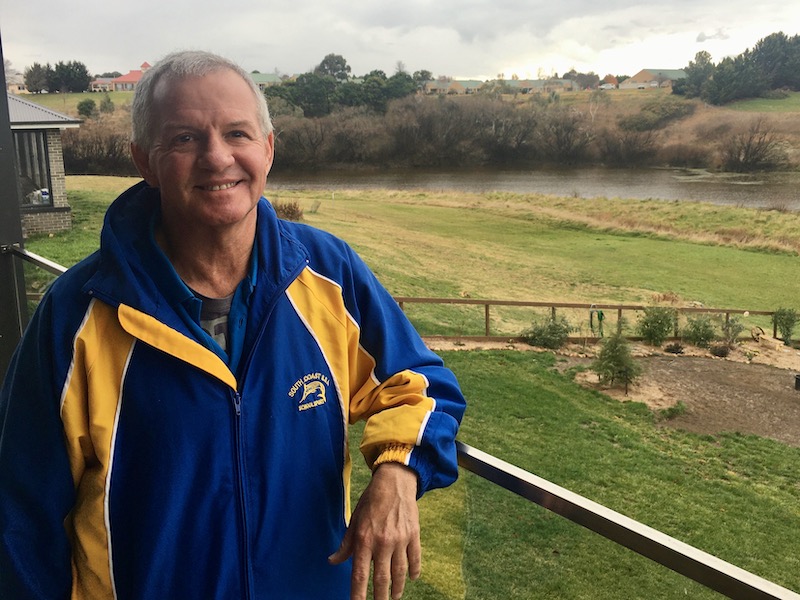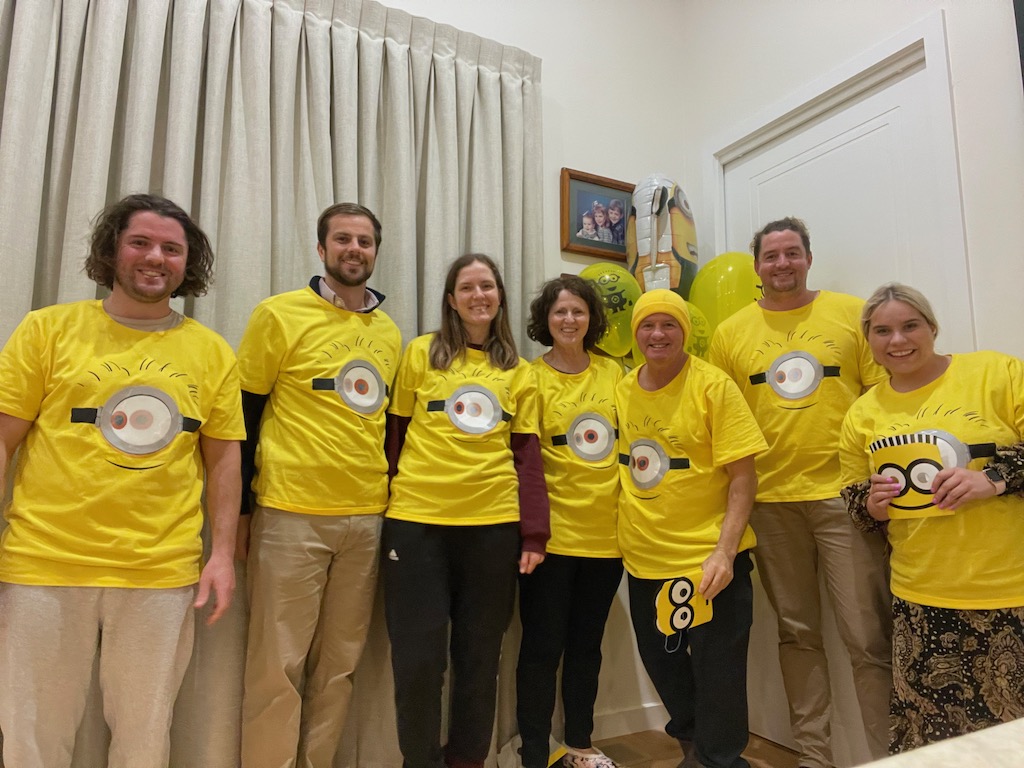
Steve Armstrong changed his ways and outlook as swiftly as deadly cancer threatened his life. Photo: John Thistleton.
Steve Armstrong always held dearly to the connections he had with his young students. He had taught many of their parents as well.
So for five to six weeks, despite pain from what he would discover was a rare and aggressive cancer, he kept working.
“Being a bloke, we tend to think, oh yeah, I’ll be right, it’ll go away,” Steve said. “I’m fit and healthy, but it didn’t go away.”
He saw his family doctor and a South West Urology specialist at Campbelltown in April last year. The grim news from urological robotic surgery specialist Dr Prem Rathore came over the phone.
As forthright as he was in telling Steve about the diagnosis, and the need to have his bladder, prostate and lymph nodes removed, that wasn’t the whole story.
Dr Rathore believed Steve had four weeks to live. But he kept this to himself. He wanted the assistant principal for 23 years at Wollondilly Primary School in Goulburn to stay positive.
“At that point, it was like a slap in the face. It was like, oh, I’m not going to be OK,” the 61-year-old father of three said. Having his body fail him was foreign to the a recipient of the Australian Sports Medal for services to sport.
Over preceding years, three life memberships had been bestowed on him, including from the Goulburn Swans Australian Rules Football Club and the Public Schools Sports Association for AFL.
In any sports arena, he could lift himself and everyone around him to win, or leave nothing in the tank trying. Now he faced an unknown opponent. He hadn’t wanted to share the news with Leanne, his wife of 35 years, or their adult children, Brad, Carlie and James. But Leanne set him straight, calling a family meeting.
“There was almost a tipping point then,” Steve said. “One, a realisation this is really serious, and two, how silly I am for not sharing it because they want to help. They are my family.”
A section of his bladder was removed in June followed by major surgery in early July.
By now, COVID-19 raged in Sydney’s west, so Steve drove alone to Campbelltown Private Hospital. Early the next morning his sedated body was turned upside down for a prolonged operation over almost 10 hours. Dr Rathore had tried to excise as much cancer as possible without compromising Steve.
His prostate and lymph nodes were removed too. Ten days’ recovery in hospital without his family followed as fluids drained from his body into pots.
An excellent planner, Leanne organised all his appointments and transport and moved swiftly to get him across the ACT border which was closing due to COVID-19 for six sessions of fast-tracked chemotherapy.
Bright red and yellow chemicals nurses dubbed raspberry and lemon juice were administered in growing doses, topped up with a needle each Saturday. Steve’s hair fell out. Ulcers broke out. His nausea churned at the thought of even more vile ‘juice’ coming. His mouth was parched. Chewing meat without saliva was tedious and tasteless. The smell of onion appalled him.

Steve (in beanie) and Leanne Armstrong with their extended family, in minions t-shirts for a laugh. Photo: Supplied.
Then intensive radiation sent his blood readings spiralling down, exposing him to infection. He spent two weeks in hospital after an infection did strike, only to be discharged to avoid a more serious one. He was so weak he could hardly stand un-aided. At home, his uplifting river views from the living room appeared like an over-exposed photo.
His blood pressure dropped. As October dragged and December finally arrived he looked as if someone had bashed him.
“I could handle the nausea from chemo, the dry mouth, not eating, but I found it really difficult with the radiation.”
He had nine blood transfusions. A bone marrow biopsy was needed before doctors were sure the cancer was not in his bones.
By January his outlook brightened, judging from the faces of his surgeon and chemo specialist who had lost their previous grave demeanours.
“They were smiling, happy, almost over-the-top overjoyed at the fact the results were showing no spread and no growth,” Steve said.
To this point, ignorance had cushioned the gravity of his illness, then Dr Rathore revealed his four-weeks-to-live prognosis of the previous year.
Steve said having a bag instead of a bladder is manageable and not the most confronting adjustment.
“The most confronting thing for me is not being as physical as I was. I’ve had to change,” he said. Expectations of running tirelessly until his 70s and 80s have been abandoned.
Friends and colleagues cooked food, mowed the lawn, brought plants around and cheered him any way they could. Brad and James’ social media posts raised thousands of dollars for Movember, to raise awareness of men’s health issues.
“That’s when I lost it,” Steve said. “Brad told me about all these former students who I taught, in high school and beyond, some teaching with him, had all donated money. I just blubbered. Because to me that was really special that they remembered me teaching them.”
Seems like he still is – only this time it’s a lesson in resilience, self-care, acceptance and love.
Original Article published by John Thistleton on Riotact.






